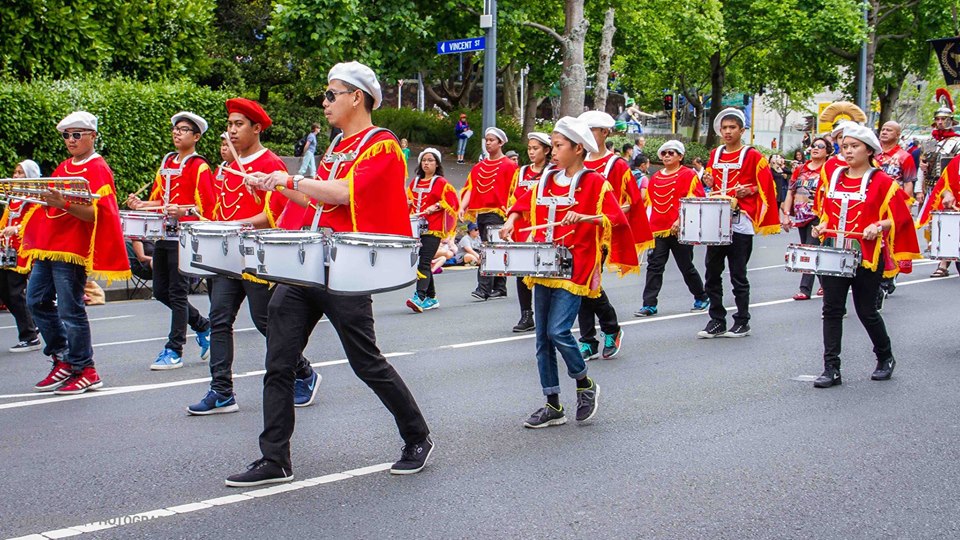https://www.filipinonews.nz/featured/in-praise-of-the-bayanihan-spirit/

Sto Nino Devotees:
“We are fortunate to have received funding from foundation North.”
By Mel Fernandez
AUCKLAND – The first celebration of the Sinulog Festival in Auckland was held on the third Sunday of January in 1994 at the Mt. Roskill War Memorial Hall with around 200 people in attendance. Over the years this religious event has been growing from strength to strength and now it’s attracting large crowds – it is estimated that over 10,000 people took part in the 2020 event.
The lead organisers of this annual event are Oscar and Miriam Batucan, who hail from Cebu – where the Sinulog festival originates. Theirs is an inspiring story of wanting to preserve a unique religious tradition for fellow Filipino migrants who are a long way from their mother land.
“We’ve been running our events for the past 26 years,” says Miriam.
“Our activities are church based, so we are both a socio-religious group
and a cultural group. We focus on our community’s needs outside the
Church. The Church service is only one hour a day or so and for the rest
of the time we are available to assist them with their needs,
especially those of the new arrivals.”
Settling in NZ
According to Miriam it is not
difficult for Filipinos to integrate into New Zealand society, “first
and foremost because we have been educated using English as a medium of
instruction and also because of our adaptability”.
The Sto Nino Group has been helping new migrants settle into New Zealand by providing a series of education seminars – for example information about NZ’s education system, budgeting and tax, health and safety.
They also make visits to the homebound and have outreach programs that take them to retirement villages and offer help to job seekers.
Attendance figures
Membership for this group is
measured through attendance at their events. “We don’t have an official
registry as such, but from an attendance of 200 in 1994 we now attract
10,000 people over the 10-day celebrations. This figure excludes
attendance during the quarterly programs,” says Miriam.
“Basically, the Sto Nino Devotees Trust was incorporated in 1994 to enable us to further our charitable activities with the aim of funding organisations and also to give people a chance to avail themselves of tax rebates for donations made to registered charities,” explains Miriam Batucan. “And it is also a way for us to have a legal entity – a prerequisite for accessing grants from funding organizations.”
Facing the challenges
“One of the biggest
challenges we have is finding a permanent venue for our activities,”
says Miriam. “For the drum line and music workshops we have to store and
transport equipment every time we run a workshop. It is quite expensive
to keep on hiring a venue and a van.”
Oscar Batucan added: “Another challenge we face is
accessing funds to run our range of activities. Without funding and the
sourcing of logistics we will not be able to run these activities or
cater to the needs of our community.
“We are fortunate to have received funding from Foundation North. We heard about them while attending a funding presentation organised by Auckland Council. The staff at Foundation North will guide applicants on the best way to present their documents. Their Quick Response Grants have been a great help with running our annual events.”
Looking to the future
The Sto Nino Devotees Trust
is keen to blaze new pathways to serve their community. “Other than
what we are currently doing now, we plan to run a livelihood program for
the unemployed and for elderly people who might want to earn some
income for themselves,” says Miriam.
“In the pipeline is a music, drama and movement program for disabled
kids, as well as a caring workshop for people who want to take an
active role in caring for the disabled, the sick and the elderly in the
community.
“The ultimate measure of our success will be when we can establish a community centre or hub that will provide a permanent base for our current and future programs for Filipino migrants as well as for other ethnic communities.”








